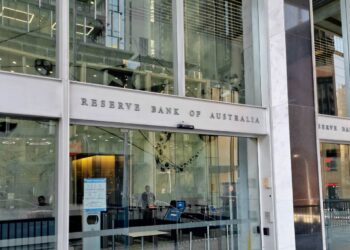The kidult economy has shifted from niche to mainstream, with investors identifying it as a scalable and investable trend reshaping global consumer markets.
Travis Prentice, chief investment officer and portfolio manager at the Informed Momentum Company (IMC), said momentum investing has revealed “kidults” – adults buying toys and collectibles – as the fastest-growing demographic in the US$100 billion toy market.
“The kidult economy is no longer fringe, it’s franchisable, brandable and increasingly investable,” Prentice said.
IMC applies a systematic momentum strategy to global small caps, designed to capture both price and business momentum.
Prentice argued that this style is often overlooked but provides investors with access to powerful cultural and technological themes as they emerge.
“Momentum is the best-performing factor in global small caps, however, can be overlooked because it lives outside the traditional style box,” he said. “If you can only be exposed to one factor in global-small, make it momentum.”
Last year, IMC’s approach highlighted kidults as a driver of the blind box craze and collectibles boom.
Pop Mart International Group, the Chinese company behind the viral Labubu dolls, has become the most visible example of this trend.
The toy maker has expanded rapidly across global markets, with the United States earmarked as a major growth opportunity.
Legacy players are also tapping into the phenomenon with Build-a-Bear Workshop, which has seen its adult customer base expand from less than 20 per cent a few years ago to almost 40 per cent today.
“Investors often overlook niche consumer subcultures until they scale, and the kidult economy is a great example of this,” Prentice said.
Pop Mart’s success illustrates the scale of the trend as the company posted first-half 2025 results showing revenue tripling and profits surging nearly 400 per cent, propelling its market capitalisation above US$40 billion since listing in Hong Kong in 2020. Its flagship Labubu dolls now account for about 35 per cent of revenue, while other toy lines also enjoy strong fanbases across global markets.
VanEck cross-asset specialist Anna Wu said Pop Mart’s trajectory highlights the broader case for emerging markets equities, which are playing an increasing role in Australian portfolios.
Additionally, Pop Mart was top five holding in VanEck’s Emerging Markets ETF, which returned 19.41 per cent over the year to 31 July, outperforming the MSCI Emerging Markets Index.
“This performance was fuelled by robust demand for their ‘blind box’ collectibles, especially the Labubu series, which captured consumer attention both in China and overseas,” Wu said.
Wu noted that Pop Mart’s rapid rise has not been an overnight phenomenon. The company spent nearly a decade refining its formula of scarcity, rapid product development and celebrity capital to create hype-driven demand.
That strategy has allowed it to cultivate a global fanbase and position itself as a cultural force as much as a consumer brand.
With 40 per cent of sales now generated overseas, Pop Mart has built a strong platform for further international growth.
Even as US–China trade tensions raise questions about tariffs, analysts expect its diversified revenue streams and global reach to sustain momentum.







